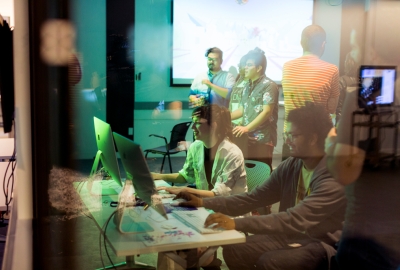This course explores interpersonal communication choices and outcomes in our ever-changing digital landscape. The class focuses on interpersonal relationships such as family, friends, and romantic relationships and will tackle topics such as online identity, listening, starting and ending relationships, social saturation, parasocial relationships, conflict, and deception. The class will critically discuss how today’s technology (e.g., social media, email) impacts the quality of our interactions so that we have the tools needed to create successful relationships.
Course #
MCC-GE 2290
Credits
4
Department
Media, Culture, and Communication


